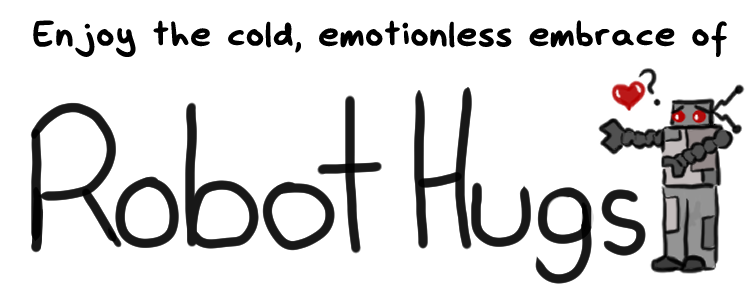
Other, by Robot Hugs
It's the age of information!
Does that even mean anything anymore?
Oh that's a whole different comic. Let's not get into that right now.
Today, information about each of us is constantly gathered, categorized, and applied to act on us as populations and individuals.
David Phillips describes this as...
The Cycle of Surveillance
Surveillance isn't just something that secret government programs do (although they certainly DO do this)...it can be at any level - government, corporations, communities, families...and it can be described as having 4 steps:
1. Individuation:
Figuring out a type of thing, and differentiating it from other types.
Most Holps have green bodies, and but some have orange bodies. Let's call those Folps.
2. Identification:
Singling out an instance of a type of thing, and telling it apart from other instances.
Because it has an orange body, this is a Folp. We'll call it Folp Number 53.
3. Observation and Tracking:
Making decisions about what should be recorded and analyzed, how it should be recorded, and how to make it visible.
Do Folps like apple sauce? Let's record what they buy and see how many of them buy apple sauce.
4. Analysis and Response:
Observations are categorized and evaluated against norms and patterns, and that knowledge is used to enact changes on individuals, populations, and processes.
Folps are much more likely to eat apple sauce when they have had it growing up. Let's make sure there's apple sauce in all Folp school cafeterias, so more of them are exposed to it as children.
This app wants to: read your texts, see your banking information, listen to your calls
Eh, whatever.
These systems are also opaque and complicated, often on purpose. Governments pass obscure and dense laws, companies sell marketing information to each other, corporations hand over user records to national security agencies...
We've often theoretically consented to this:
Terms of service (page 1 of 56)
But it is virtually impossible to keep track of all the ways that our information is being tracked and used.
Furthermore, we often don't have a choice: the only alternative to consenting to information gathering on an organizations terms is to opt out of that system entirely, and for many people, that just isn't a choice.
This means that unless we are able to understand the systems that are gathering and analyzing our information, we have limited resources to influence and change how we are being categorized.
Our systems have flagged you as a medium-risk threat.
What does that even mean??
That's classified.
Stay tuned for the next installment: Categorizing the You and the Not You!





